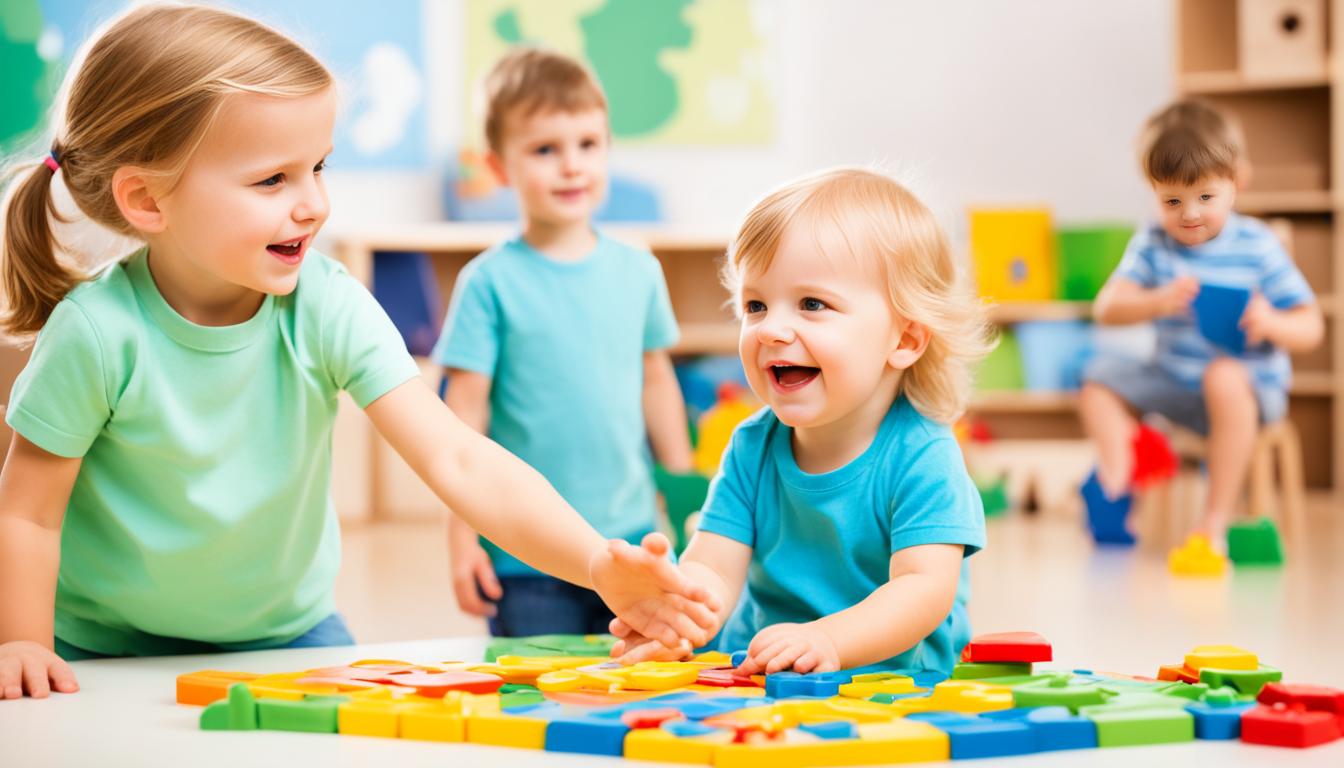Understanding Social Emotional Development in Early Childhood
Social emotional development plays a pivotal role in shaping a child’s growth and well-being during their early years. It encompasses the acquisition of essential skills and abilities related to emotions, self-awareness, social interactions, and resilience. Research consistently shows that social emotional development in early childhood has a profound impact on a child’s lifelong learning and overall quality of life.
During the early years, children go through various stages of social emotional development that contribute to their overall growth. They start with becoming aware of their own emotions and understanding the feelings of others. Building social connections and relationships is an important phase where they develop empathy, learn to share, and value friendship. As they progress, they learn to regulate their emotions effectively and develop problem-solving skills and resilience to navigate challenges in their interactions with others.
Key Takeaways
- Social emotional development in early childhood impacts a child’s lifelong learning and well-being.
- The stages of social emotional development include awareness, building social connections, self-regulation, and problem-solving.
- Social emotional skills are crucial for positive mental health, academic success, and overall learning.
- Parents, educators, and caregivers play a vital role in promoting social emotional development.
- Creating a supportive environment, teaching empathy, and fostering emotional intelligence are effective strategies.
The Stages of Social Emotional Development in Early Childhood
The process of social emotional development in early childhood unfolds through several distinct stages. These stages are essential for children to develop key skills and abilities related to emotions, self-awareness, and social interactions. Understanding these stages can provide valuable insights into how children grow and navigate their social and emotional worlds.
Awareness Stage
In this initial stage, children start to become aware of their own emotions and those of others. They begin to recognize different emotions, such as happiness, sadness, anger, and fear. Developing self-awareness helps children understand their feelings and express them appropriately.
Building Social Connections and Relationships
During this stage, children focus on building social connections and developing relationships with peers and adults. They learn empathy, the ability to understand and share the feelings of others, which forms the foundation for healthy relationships. By learning how to share, take turns, and cooperate, children develop important social skills necessary for successful interactions.
Self-Regulation and Managing Emotions
As children progress through early childhood, they acquire the ability to regulate and manage their emotions effectively. This stage is crucial for developing self-control, impulse management, and emotional resilience. Children learn to recognize and express their emotions appropriately, without becoming overwhelmed or acting out.
Social Problem-Solving and Resilience
In the final stage, children develop the necessary skills to solve social problems and navigate conflicts in their interactions with others. They learn how to negotiate, compromise, and find solutions that satisfy everyone involved. Building resilience allows children to bounce back from challenges and setbacks, helping them navigate the complexities of social relationships.
This visual representation summarizes the stages of social emotional development in early childhood:
| Stage | Description |
|---|---|
| Awareness | Recognizing and understanding emotions |
| Building Social Connections | Developing empathy and social skills |
| Self-Regulation | Managing emotions and self-control |
| Social Problem-Solving | Navigating conflicts and developing resilience |

The Importance of Social Emotional Development in Early Childhood
Social emotional development in early childhood plays a vital role in shaping a child’s overall well-being and lifelong learning. It serves as the foundation for positive mental health and equips children with essential skills and abilities necessary for navigating the complexities of life.
Children who develop strong social emotional skills are better equipped to manage their emotions effectively. They gain a deeper understanding of their feelings and learn how to regulate them, leading to improved self-control and resilience in the face of challenges and adversity.
Furthermore, social emotional development in early childhood fosters the ability to build healthy relationships and develop meaningful connections with others. By learning empathy, communication, and conflict resolution skills, children can cultivate positive and supportive relationships with their peers, family, and communities.
“Social emotional development lays the foundation for positive mental health and well-being throughout a child’s life.”
In addition to its impact on social interactions, social emotional development significantly contributes to a child’s academic success and overall learning experience. By developing social emotional skills, children can better focus, concentrate, and engage in educational activities. They develop better self-regulation and impulse control, which are crucial for effective learning and achievement.
The Lifelong Benefits of Social Emotional Development
Social emotional development in early childhood has long-lasting effects on a child’s well-being and future success. Research has shown that individuals with strong social emotional skills are more likely to experience positive mental health, maintain healthy relationships, and succeed academically and professionally.
Nurturing social emotional development in early childhood sets the stage for a fulfilling and successful life, promoting emotional well-being, empathy, and resilience. It empowers children to navigate life’s challenges, make responsible decisions, and contribute positively to society.
“By nurturing social emotional development in early childhood, we lay the groundwork for a brighter future for our children.”

Next, we will explore effective strategies that parents, educators, and caregivers can implement to promote social emotional development in early childhood and pave the way for a thriving future.
Promoting Social Emotional Development in Early Childhood
When it comes to supporting social emotional development in early childhood, there are several effective strategies that parents, educators, and caregivers can implement. Creating a supportive and nurturing environment is paramount. Children thrive when they feel safe and loved, so providing them with a secure atmosphere helps promote their emotional well-being.
Another essential strategy is to provide ample opportunities for social interactions. Encouraging children to engage with their peers helps them develop crucial skills such as communication, empathy, and cooperation. Through playdates, group activities, and collaborative projects, children learn how to navigate social situations and build meaningful relationships.
Teaching empathy and perspective-taking is also vital in fostering social emotional development. By helping children understand and appreciate others’ feelings and perspectives, we encourage them to become compassionate and considerate individuals. Modeling positive behavior is an effective way to teach empathy, as children often learn by observing and imitating the adults around them.
Incorporating social emotional learning into educational curricula is another powerful strategy. By integrating structured lessons and activities that explicitly focus on emotional intelligence and self-regulation, educators can systematically nurture social emotional skills in children. This approach ensures that social emotional development is not overlooked and becomes an integral part of a child’s education.
By embracing these strategies and prioritizing social emotional development in early childhood, parents, educators, and caregivers play a pivotal role in helping children become emotionally resilient, socially competent, and well-rounded individuals. Together, we can create a supportive environment that fosters lifelong social emotional growth, paving the way for a brighter future.
FAQ
What is social emotional development in early childhood?
Social emotional development in early childhood encompasses the development of skills and abilities related to emotions, self-awareness, social interactions, and resilience. It is a crucial aspect of a child’s overall growth and well-being.
What are the stages of social emotional development in early childhood?
The stages of social emotional development in early childhood include the awareness stage, building social connections and relationships, self-regulation and managing emotions, and developing social problem-solving skills and resilience.
Why is social emotional development important in early childhood?
Social emotional development in early childhood is important because it lays the foundation for positive mental health and well-being throughout a child’s life. It also plays a vital role in a child’s academic success and overall learning.
What strategies can be used to promote social emotional development in early childhood?
Strategies to promote social emotional development in early childhood include creating a supportive environment, providing opportunities for social interactions, teaching empathy and perspective-taking, modeling positive behavior, and incorporating social emotional learning into educational curricula.






